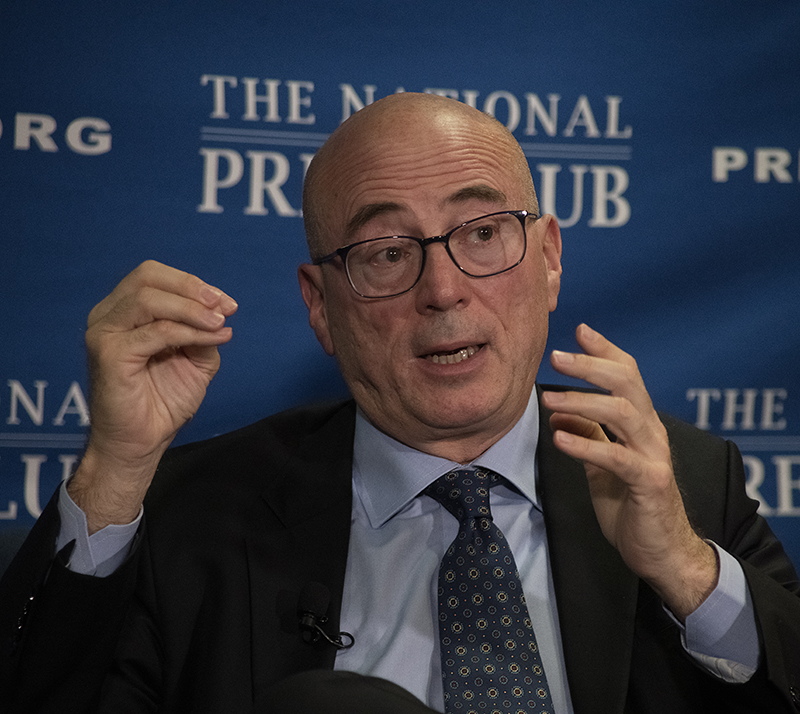“Look around. Everything in Washington we see reminds me of Rome," he said. "The Capitol dome is modeled after St. Peters dome in Rome” designed by Michelangelo.
The Thomas Jefferson Memorial, meanwhile was inspired by the Pantheon in Rome. Capitol Hill was named after the Roman Capitolium - referring to one of Rome’s seven hills and center of religious and political power.
Cazzullo has written 30 books on Italian history and identity and helped shape Italy’s national dialogue for over 30 years, Mendoza said. He is deputy managing editor of Corriere della Sera, a leading Italian daily.
The original motto of the United States, ‘’E Pluribus Unum," and the bald eagle, find Roman roots in Latin and the eagle symbol worn by Roman legions -- two instances among many proving Rome’s lasting influence. So does “the idea that the state belongs to the people,” said Cazzullo. George Washington looked to the Roman Republic and founded the Society of Cincinnatti.
Now in English, Cazzullo’s book explores ancient civilizations’ influence on modern life and parallels between the United States and the Roman Empire. He argues that the Roman Empire’s true heirs are Western Civilization and the United States. “Democracy is a Greek word, but Rome was the first real democracy.” It too struggled with immigration, income inequality, distant wars, the tension between inclusion and control.
“I don’t want to idealize Roman history,” he said. “The Roman story begins with a kill when Romulus [from whom Rome is named] kills his twin brother Remus.” He tells of the violence, brutality and murder that followed, the slaughter of 40,000 Barbarians.
Answering audience questions, Cazzullo said the election of the first American pope “is very important," that the reception throughout Europe is positive, and noted Pope Leo XIV’s African-Creole history. Pope Leo I he said, “was a pope who stopped barbarians not with arms but with the cross.”
“The Christian God was universal, and Romans persecuted Christians because they turned the Roman view of the world upside down.”
“Trust me, America is not declining…It doesn’t have to close itself off…I think American democracy is too strong to fail,” he replied to questions about the United States today.
“Why write a book now?” Mendoza asked. “Was there a moment?”
“Because we face many of the same issues,” he said, “like ongoing wars, immigration,” our role in the world, shared values….” He highlighted “whatever our origin, skin color or religion, we could become a Roman.” He likened Roman’s political strategy of turning defeated enemies into allies to what the US did after World War II. “Italy is not our enemy,” President Roosevelt said after the war, citing Michelangelo….
“Every empire considered itself the heir to the Roman Empire,” like Constantinople, the British Empire, and Moscow. “Napolean adored Julius Caesar. He wrote a book about him and wanted to be crowned emperor not king.” Caesar, Cazzullo suggests, is the greatest human being who ever lived, noting he made “an alliance with the people…and left everyone [the equivalent of] $1,000.”
“The West is built on the foundation of Rome…I chose [for this book] heroes that can teach us about us.” In closing, Mendoza asked Cazzullo where he would go if he could time travel. “I’d like to interview [Julius] Caesar, spend a day with him, enter his mind.”

